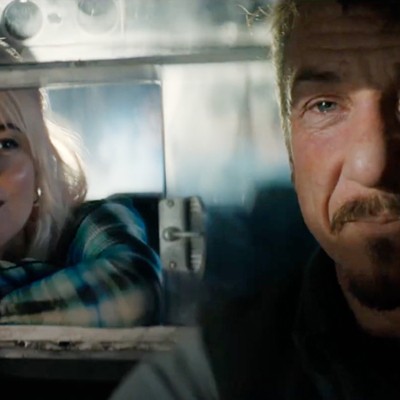Franchise best Godzilla Minus One examines Japan's post-war trauma
Far more than just a simple monster movie, Takashi Yamazaki's Godzilla Minus One is a moving examination of a nation dealing with societal trauma, the Japanese populace attempting to recover from massive damage inflicted on their land as well as their national psyche. Taking place just after World War II and before Ishiro Honda's 1954 original, the story is a bracing examination of Japan during the post-war era, a once proud country reduced to rubble, its citizens devastated, body and soul, forced to come to terms with their tattered heritage and uncertain future.
Kochi (Ryunosuke Kamiki) is just one of millions uncertain about what each day may bring; that he carries an inescapable stigma only makes matters worse. A kamikaze who refused to make the ultimate sacrifice, he returns home in shame, only to find his house destroyed and his family gone. Despondent and uncertain, his path crosses that of Noriko (Minami Hamabe), a young woman who has also lost everything yet has taken in an orphaned child to care for. These three form a makeshift family, struggling to cobble together some sort of day-to-day existence.
Fate shines on Kochi when he gets a high-paying government job gathering and disabling the thousands of ocean mines left behind by Allied forces. It's dangerous work, but the salary comes in handy, while his co-workers Akitsu (Kuranosuke Saski) and Noda (Hidetaka Yoshioka) become trusted friends. The crew settle into a routine, but it's violently disrupted by the United States' nuclear bomb tests being conducted on nearby Bikini Atoll. They have not only awakened a dinosaur-like animal the natives refer to as Godzilla, but have transformed it into an unstoppable, atomic-fueled creature that is the personification of the nation's fear.
While the seminal creature is the selling point, the focus of the film is the impact WW II had on the Japanese culture. Godzilla is a metaphor for the trauma Japan has faced, a shambling, fire-breathing, six-story symbol of the PTSD each of the survivors must contend with. Not only does he represent the past, but the future as well, the monster a threat that must be faced and contained if this society is to survive. His attacks in Ginza and Tokyo are tests, the suffering of the country made real. And those moments are not only spectacular but terrifying. There's an urgency to these scenes that's absent in the other Godzilla films, the filmmaker putting the viewer in the monster's path, within his zone of destruction, again and again.
In the end, this is a tale of redemption, and as such, the improbable ending is in keeping with Kochi and his brethren's journey. Timely, exciting and cathartic, Godzilla Minus Zero proves to be one of the biggest cinematic surprises of 2023, a movie that not only revitalizes the Japanese franchise but also serves as yet another bracing reminder of man's atomic folly and the inescapable threat it continues to pose. In theaters.
Cage on point in timely, bracing Dream
Imaginative, timely and, at times, horrific, Kristoffer Borgli's Dream Scenario is a bracing social commentary that provides Nicholas Cage with yet another intriguing role that allows him to continue his career resurgence. Paul Matthews (Cage) is a university professor specializing in evolutionary biology. He's an unassuming man – to a fault – and then, something odd happens when hundreds of people begin to see him in their dreams. Once this story goes viral, it becomes apparent the number is in the thousands and that they all have one thing in common. In these dreams, Matthews does nothing. Whether the dreamer is being attacked, the victim of a car accident or dealing with an apocalyptic event, he stands passively by and watches the myriad subconscious worlds he appears in crumble before him.
Borgli is very in tune with the times in the way he examines how a quirky phenomenon such as this would be handled in the media. An up-and-coming ad agency approaches Matthews about capitalizing on his fame, and their suggestions are in keeping with the sort of saturation approach used on today's media platforms, though what they have in mind for the delivery system our hero has opened up at first seems outlandish. However, on reflection, it's in keeping with the modern blitzkrieg approach as are the strategies employed when they are forced to pivot once public opinion toward Matthews changes.
The most pointed and effective aspect of the film is Brogli's examination of the abuse of today's victimhood culture and the eagerness to martyr oneself simply for attention. The university where Matthews works, where he's initially praised and ultimately vilified, is a microcosm of this movement. As he points out, every interaction is seen as a trauma today and all the students who he "offends" refuse to truly confront the problem, opting to wallow in their martyrdom. That Matthews issues a sincere apology, which is dismissed as self-serving, comes as no surprise.
While Cage has become known for his outsized performances, his more introspective work is often overlooked. Here, he walks a fine line between the two, effectively tapping into the longing so many have to stand out from the crowd, his need for respect palpable. As with most cautionary tales, the warnings contained here will fall on deaf ears, its message too late in coming what with the various genies it examines already well out of their respective bottles. However, Borgli proves to be a voice to pay attention to as Dream Scenario is a daring, pointed piece of work that should be heeded, while Cage reminds us how vital a screen presence he can be when given challenging material. In theaters.

















